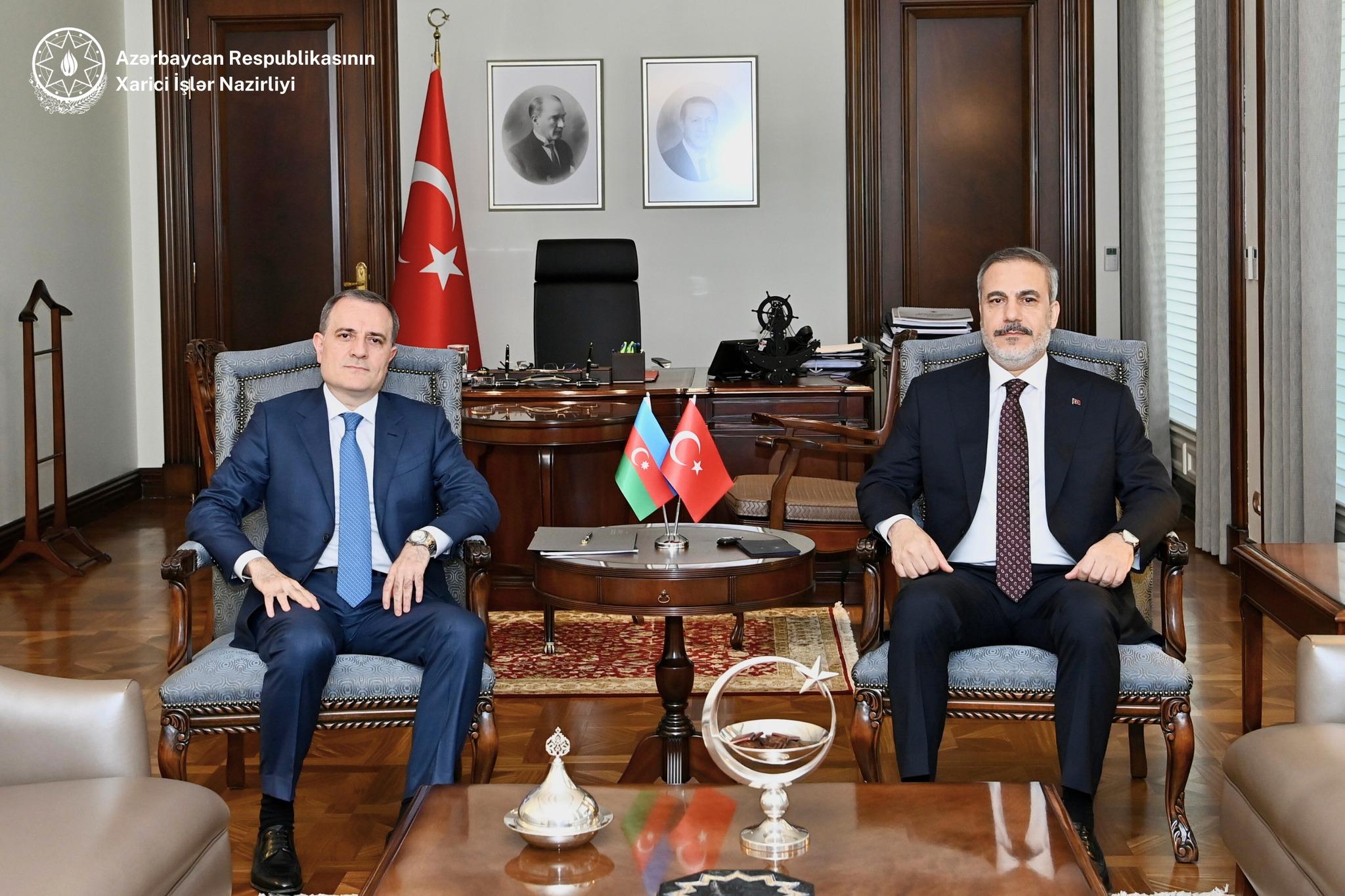Baku and Ankara give Yerevan another chance Peace and stability depend on regional players
Last week’s visit by Turkish Foreign Minister Hakan Fidan to Azerbaijan once again confirmed the unity of positions of Baku and Ankara in establishing long-term stability and security in the South Caucasus, consolidating Türkiye’s foreign policy priorities in the matter of normalizing Armenian-Azerbaijani and Armenian-Turkish relations.
To recap, Fidan arrived in Baku after negotiations in the United States. This is his third visit to Azerbaijan after his appointment as head of the Turkish Foreign Ministry. As is known, official Ankara is making serious diplomatic efforts to achieve a ceasefire in Gaza, and even though this issue, according to Turkish media, was the main one on the agenda of Hakan Fidan’s negotiations in Washington. The situation in the South Caucasus and the Armenian-Azerbaijani peace process were also discussed there. This is logical since Türkiye is Azerbaijan's closest ally.
Therefore, it is not surprising that after the Washington tour, the Turkish minister immediately arrived in Baku to discuss the results of the meetings at the American site with the Azerbaijani leadership. The head of the Turkish Foreign Ministry was received by President Ilham Aliyev and also held a meeting with his Azerbaijani counterpart Jeyhun Bayramov. At a joint media briefing with Bayramov, Fidan noted that a historic opportunity had arisen to achieve peace between Azerbaijan and Armenia, and this opportunity should not be missed.
It should be noted that this message confirmed the equal interest of Baku and Ankara in establishing peace in the region in the near future. At the same time, the head of the Turkish Foreign Ministry drew attention to the fact that the Armenian diaspora and a number of third countries are trying to influence the position of Armenia and are conducting inflammatory activities in this regard.
“We are seeing how some countries are trying to negatively influence the peace process in the region with provocative steps,” Fidan said, assuring that Türkiye is using all opportunities against attempts by third countries to divert the process in the wrong direction and is ready to do everything possible to achieve peace.
We can confidently say that the Turkish diplomat’s message was addressed specifically to Paris.

At the same time, the Turkish Foreign Minister also brought certainty to the Armenian-Turkish settlement. In particular, he stated that the normalization of relations between Azerbaijan and Armenia will pave the way for the establishment of ties between Türkiye and Armenia. That is, Ankara once again showed that it coordinates the process of normalization of relations with Armenia primarily with Azerbaijan.
This approach of Türkiye brings certainty also to the issue of opening the Armenian-Turkish border, around which optimistic statements are periodically voiced in the Armenian government. For example, at the opening of the fall session of the OSCE Parliamentary Assembly in Yerevan, Pashinyan said that he hopes to hear news about the opening of the Armenian-Turkish border for third-country nationals and holders of diplomatic passports soon.
“We are also engaged in dialogue with Türkiye. In any case, we have never had such an active dialogue, although we have not yet achieved any success in terms of establishing diplomatic relations,” Pashinyan admitted, adding that the settlement of relations between Armenia and Türkiye is the most important factor in the strategic vision of the region.
In the same context, Armenian Foreign Minister Ararat Mirzoyan spoke in November this year in the Armenian parliament.
"I would like to express optimism that our agreements, at least on the opening of the Armenian-Turkish border for third-country citizens and holders of diplomatic passports, will be realized in the near future and we will have good news," Mirzoyan said.
It is worth noting that certain optimism is also seen in the statements of Armenian officials regarding ensuring long-term peace in the region. Thus, speaking at the ministerial meeting of the Eastern Partnership countries in Brussels, Ararat Mirzoyan said that the Armenian government has the political will to ensure stable and long-term peace in the region, noting the recent joint statement of Armenia and Azerbaijan on the exchange of military personnel and the agreement to support each other's candidacies in some international platforms.
In this context, it is also worth noting the statement made on December 15 by the Minister of Territorial Administration and Infrastructures of Armenia Gnel Sanosyan that Armenia is ready to place seven checkpoints of road infrastructure on the borders of Armenia-Azerbaijan and Armenia-Türkiye, to ensure communication between Armenia, Azerbaijan and Türkiye, restoring four various sections of railway infrastructure. Armenia will also establish four Armenia-Azerbaijan checkpoints and one checkpoint on the Armenia-Türkiye border, the minister said.
In fact, we are now witnessing a certain sobering of Yerevan, which has realized that prosperity and security in the region cannot be achieved without peace with its neighbours. One would like to believe that these steps by Armenia will be consistent and it will seize the chance presented to it by Baku and Ankara. For their part, Azerbaijan and Türkiye not only support peace, stability and development in the region but also take all measures to achieve them. The main thing is not to stop, because the well-being of the countries of the region depends only on the countries of the region themselves.








